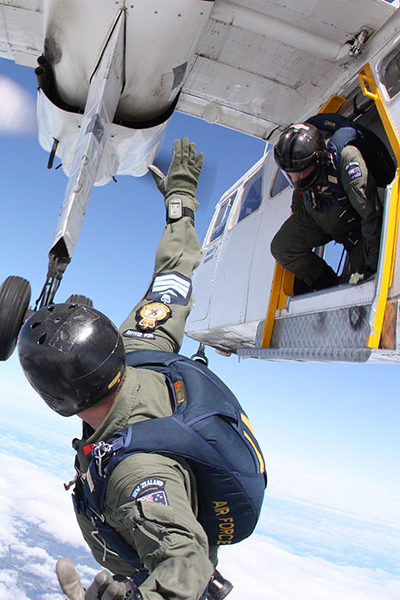A duty to protect: Identifying harmful behaviour in the New Zealand Defence Force
 In early 2022, I was sitting in a small room with someone from the New Zealand Defence Force (NZDF), asking how safe and respected they felt working there. At the end of the interview, they told me that they were off to practice parachuting out of a plane.
In early 2022, I was sitting in a small room with someone from the New Zealand Defence Force (NZDF), asking how safe and respected they felt working there. At the end of the interview, they told me that they were off to practice parachuting out of a plane.
People sometimes suggest that you can’t expect the defence force to be a safe environment because NZDF personnel often work in dangerous conditions and are trained in using lethal force.
But this overlooks the fact that for teams to work effectively, people need to trust and respect each other. To be successful in the wide range of tasks they do – from combat operations to disaster relief – NZDF needs to attract and retain people with a diverse range of skills and perspectives. NZDF has a duty to ensure its people are not in working environments where they are being harmed by their own people.
In 2021, the Chief of Defence Force asked the Auditor-General if our office would monitor NZDF’s progress in eliminating harmful behaviour (including harmful sexual behaviour, bullying, harassment, and discrimination) over the next 20 years.
This presented a challenge: how do you determine how safe, respectful, and inclusive a workplace is in a large organisation like NZDF – where personnel work in a huge variety of environments, from standard offices to international deployments in conflict zones?
We reviewed available research on organisational development and culture change in militaries and drew on our recently published integrity framework.
A vital piece of our work was an organisation-wide survey. The survey was offered to all 12,492 civilian and regular forces personnel. We received 6673 responses – a 53.4% response rate. This was the first independent survey of harmful behaviour in the NZDF and gave us a comprehensive picture of how prevalent these behaviours are.
It was clear to us that NZDF’s senior leaders are committed to change. However, the survey indicated the scale of the problem NZDF faces. While most personnel said they felt safe from harmful behaviour, 78 personnel (1.3% of respondents) told us they had experienced unwanted sexual activity in the previous 12 months. These are behaviours that fall within the category of sexual assault.
Harmful behaviour can be carried out by anyone and affect anyone, but women experience far higher rates of inappropriate and harmful behaviour than men. In the previous year, 7.2% of junior uniformed women who responded to our survey had experienced unwanted sexual activity. Nearly one-quarter (24.6%) of junior uniformed women who responded had experienced some form of inappropriate sexual behaviour. Nearly one-fifth (19%) experienced bullying, harassment, or discrimination.
We also spoke in depth to 126 personnel from all parts of the organisation. In these interviews, personnel of all genders described workplaces where they were treated well, and valued, by their leaders and peers.
But a small number – again, often junior uniformed women – told us about working in environments where they were subject to unwanted sexual attention, physical contact (such as hugs) from superiors that made them uncomfortable, or frequent sexualised or derogatory comments made by peers or superiors that were not dealt with. This suggests that those who don’t fit the norm of what a soldier, sailor, or aviator has historically been more commonly experience harm.
We also heard that people had very different experiences based on the unit or team they belonged to, and whether there were conditions there that made harmful behaviour more or less likely to happen. For example, we heard reports that senior personnel in some work environments still had derogatory views about women. We found that when these attitudes existed, it made it more likely that women in these units would experience harmful behaviour. However, in other units, leaders sent a clear message that all people should be valued regardless of their gender, rank, or any other characteristics. These leaders were clear with people about what behaviours were not appropriate. People felt more respected in these units and felt they could do their work without experiencing harm.
Understanding these conditions and risks is important. But so is understanding the positive parts of an organisation’s culture that already exist and drawing upon these to improve everyone’s experiences. These are called protective factors.
NZDF accepted our 11 recommendations and say they will implement them in full. We will continue to monitor their progress over the coming years.
To find out more about our work on Operation Respect, you can read our reports on our website.
Photo acknowledgement: © NZDF
